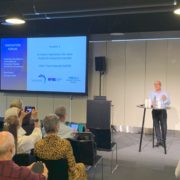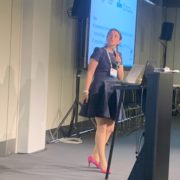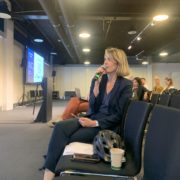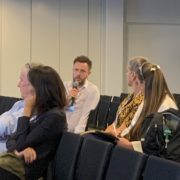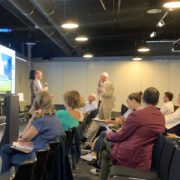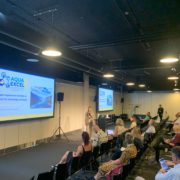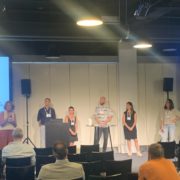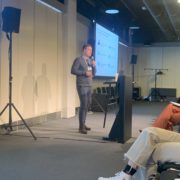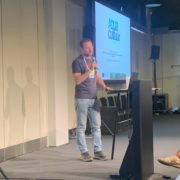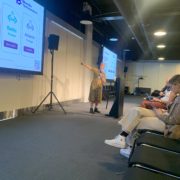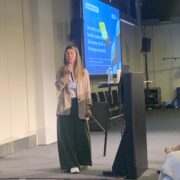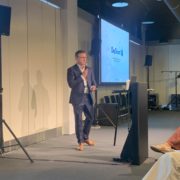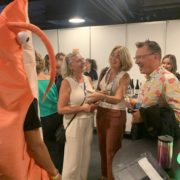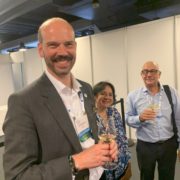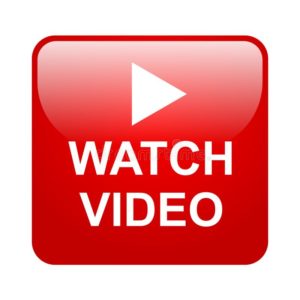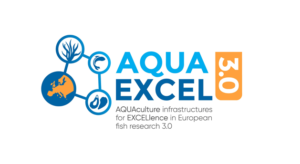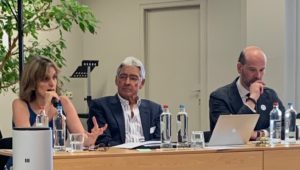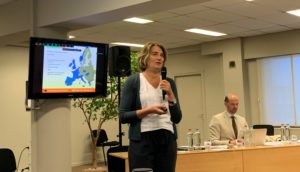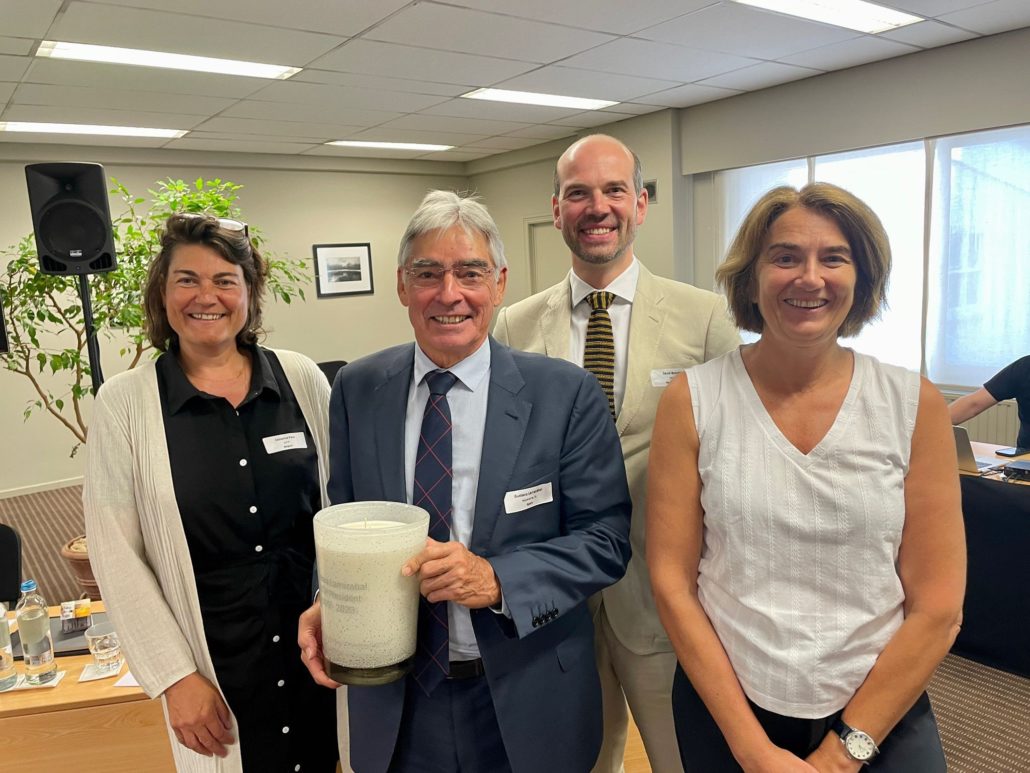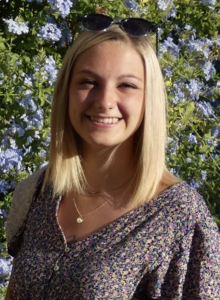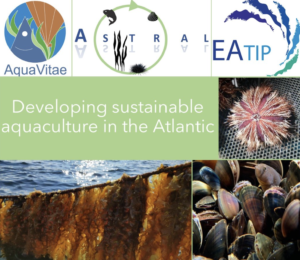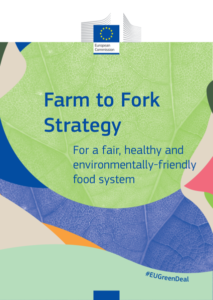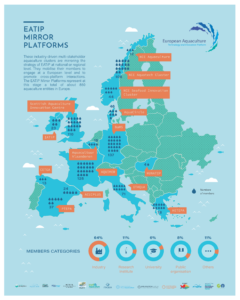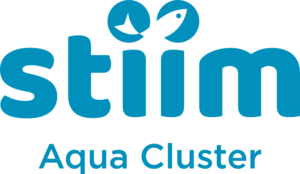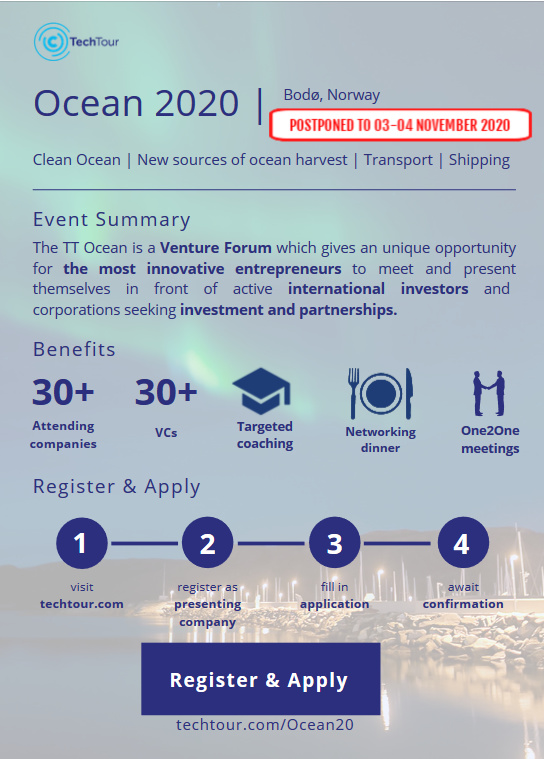EATIP @ AQUACULTURE EUROPE 2024
EXPLORING COLLABORATION & INNOVATION TRANSFER VEHICLES FOR AQUACULTURE
AQUA2024 – COPENHAGEN – Innovation Forum, August 28th
THANK YOU FOR YOUR PARTICIPATION!
09:00 Introductions
Moderators: David Bassett (EATiP); Alistair Lane (EAS)
09:15 Session 1: Fostering regional synergies in Europe for innovation in aquaculture
(Chair: David Bassett, EATIP)
- DG MARE, Unit A2 – Lorella de la Cruz Iglesias
- DG RTD, Unit Healthy Seas and Oceans – Nikos Zampoukas
- DG REGIO / S3 Community of Practice / IDEA Consult – Els Van de Velde
10:15 Plenary Discussion
10:45 BREAK
11:15 Session 2: Inter-Regional Innovation Landscape in Practice: case studies on how innovation transfer vehicles promote advances in aquaculture
(Chair: Mieke Eggermont, EATIP Mirror Platform WG chair)
- Example 1: InterReg – Adriatic Interregional Collaboration – Francesca Perretta (IPA ADRION National Contact Point Marche Region)
- Example 2: TSSP for Smart and Circular Aquaculture – David Bassett (EATiP)
- Example 3: Innovation Transfer with Mission Ocean – Blue Mission Banos (Efthalia Arvaniti (Submariner Network)
- Example 4: EATiP Mirror Platform Working Group on Sludge – Ann Cecilie Hilling (NCE Aquaculture)
- Example 5: The Nordic Research and Innovation Initiative for Sustainable Aquaculture – Kjell Maroni (Fisheries and Aquaculture Industry Research Fund / Nordforsk)
12:15 Panel discussion among speakers
12:30 LUNCH
14:00 Session 3: Innovation transfer within the Aquaculture Research Community
(Chair: Ana Hererro (Patogen / AQUAEXCEL3.0 IRAP)
- Example 1a: High impact AQUAEXCEL3.0 Knowledge Outputs
-
- Introduction: Open experiment facilities as tools for knowledge exchange – Karla Corrales (ERINN Innovation)
- CryoPlankton benefits in seabass aquaculture – Konstantinos Tzakris (Planktonic)
- Transforming food industry and agriculture waste into nutrient-rich alternative feed for fish: A Case Study with Black Soldier Fly Larvae – Martin Kulma (Czech University of Life Sciences Prague)
- Application of innovative and easy sustainable environmental enrichment on the behaviour and welfare of farmed trout – Georgina Lea Fazekas (MATE)
- Mentimeter
- Example 1b: European Marine Biological Resource Centre – Mery Pina (EMBRC)
- Panel discussion
- Example 2: EU-Asian International capacity building as a vehicle for future innovation transfer – Patrick Sorgeloos (EATiP International Cooperation Working Group)
- Example 3: FAO Aquaculture Unit – case study of the Shanghai Ocean University – TBC.
15:45 Session 4 – Facilitation, funding models and future calls for inter-regional innovation transfer
(Chair: Damien Toner / BIM)
- BlueInvest: Funding as international support tool – Cathrine Frideres (BlueInvest)
- ECBF – European Circular BioeconomyFund – Mathias Brink Lorenz (ECBF)
- EMFAF funds for the Flemish Aquaculture Cluster VAP – Stefan Teerlinck (Inagro)
- Mentoring and Accelerator Programme for Blue Growth – Efthalia Arvaniti (Submariner Network)
- Innovation and knowledge transfer support by Blue Bioeconomy CoLAB, a Portuguese case study – Taynara Franco (B2E)
- International Innovation Transfer as development support – Paw Petersen (Oxyguard)
16:45 Closing discussions
17:00 NETWORKING DRINK


